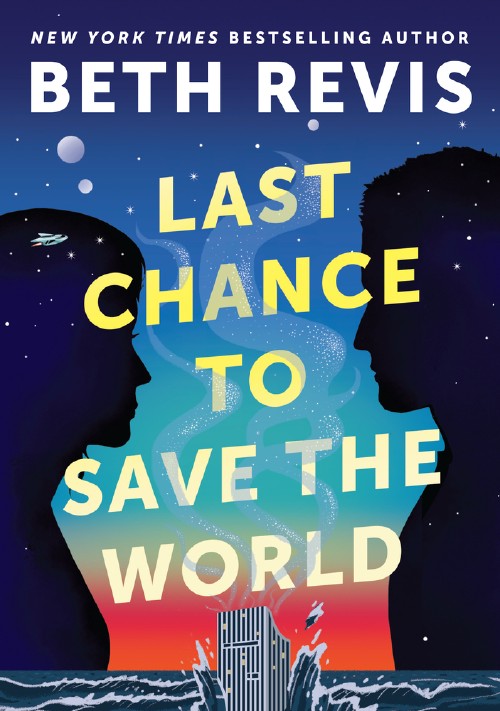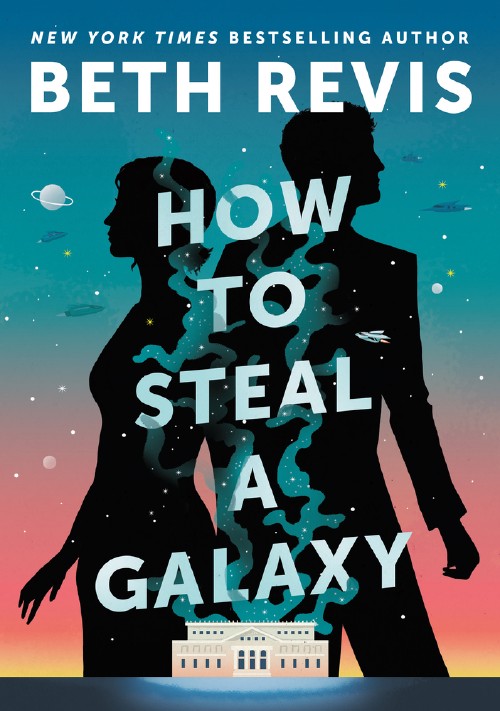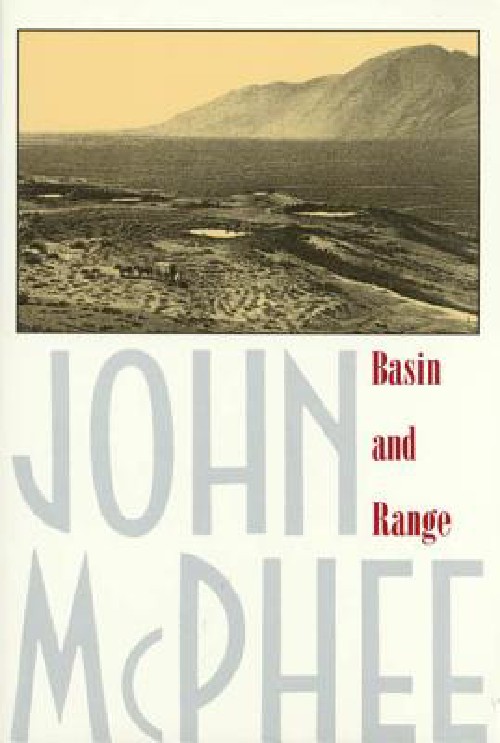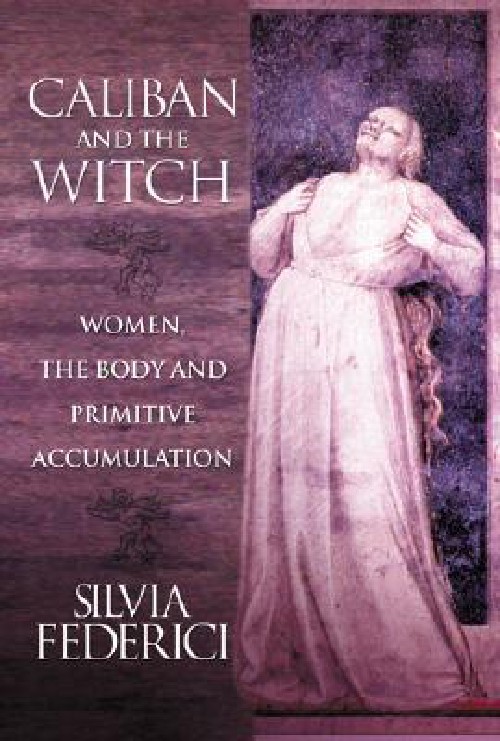In 2019 I read 73 books; the most I’ve read in a single year possibly in my entire life. A friend recently asked how I read so fast, and the honest answer is I don’t read that fast, I just dedicate more time to reading than anything else. This year I stopped watching TV and movies pretty much completely, I found they didn’t hold my attention. If I wasn’t with my kids or hanging with friends, I probably had my nose in a book. And thus the year end total. I do not expect to match it in 2020; too many big changes coming.
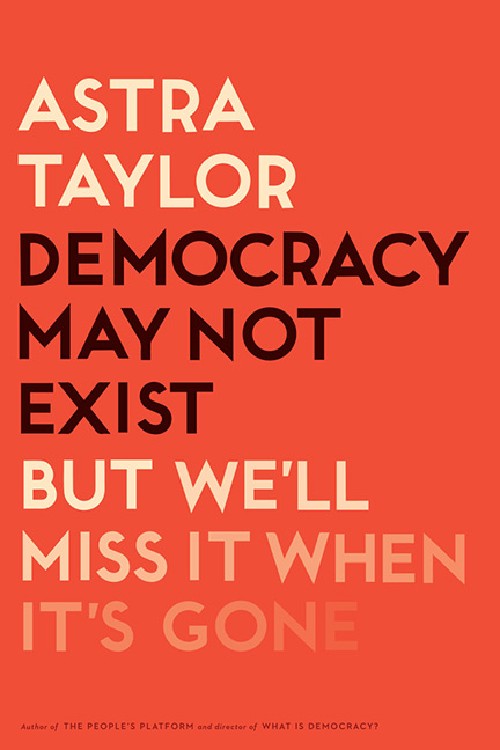
Democracy May Not Exist, But We'll Miss It When It's Gone
Copyright 2019, Metropolitan Books
Cultural Analysis
This post is an attempt to summarize my year in reading and point you to some of the notable things I read. I’m not really sure I could name “favorites” of the year, I am extremely choosy about books I read and while I loved and would more strongly recommend specific books (thus this post) I didn’t finish reading any book that I hated. Thus my reading list is a pretty good recommendations list.
In the past few years I’ve been able to winnow my unending curiosity about the world into some general non-fiction topics: critical analysis of tech, climate change, Black history/race theory, and disability theory. These topics are separated below, but there’s still an “other” category because I am bad at focusing. I’m saving fiction for another post because this post is too damn long already.
Also, I try not to closely track my stats aside from keeping track of how many books I’ve read, but by my count only 11 of the 73 books I read were written by white dudes. More importantly, 42 of the 73 were written by people of color or trans writers. I hope I can continue to de-center whiteness in my reading.
Critical Analysis of Tech
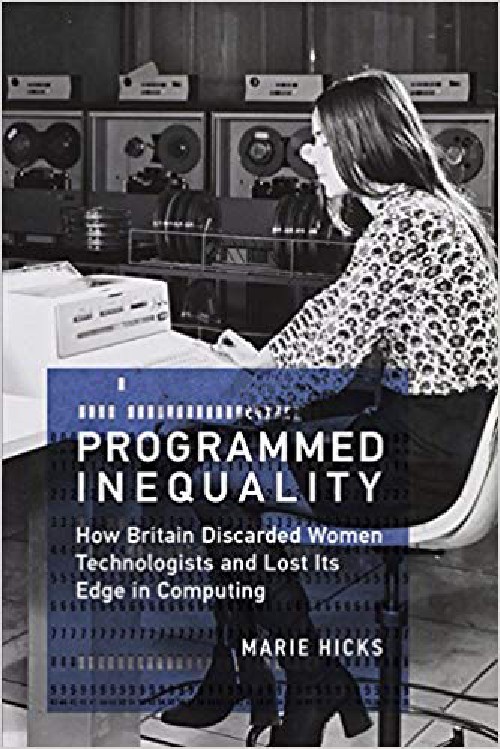
Programmed Inequality
Copyright 2017, MIT Press
Tech Industry
One of my projects in the past few years has been to find every book I can that critically examines the tech industry, and make my way through them. My queue remains long but I’m learning a lot as I work through it. This year I think the book that stood out to me the most was Marie Hick’s Programmed Inequality, which examines the way that the British computer industry institutionalized sexism and inequality through centrally organized job descriptions, pay grades, and most importantly, intentional misrepresentations of the complexity of the work women did in the decades after WWII.
The book is a fantastic history of the ways that the institutions (or, the men with power inside the institutions) conspired to push women out of the possibilities the new industry offered. The book also includes first-hand accounts from women involved in the industry to help us understand what their lives and jobs were like. Hick’s book is not uplifting; it’s a story of systemic injustice and harm, but reading it, I recognized how relevant it is to our current era.
Other books that I enjoyed this year on this topic:
- Ursula Franklin’s The Real World of Technology, which I reread for the 4th time.
- Ruha Benjamin’s Race after Technology examines how digital tech is interacting with race and marginalized identities. She builds on Michele Alexander’s The New Jim Crow to argue for the existence of The New Jim Code, as tech further institutionalizes marginalization and disparity.
- Meredith Broussard’s Artificial Intelligence, an excellent overview of the flaws inherent in Machine Learning and AI.
- Sarah Robert’s Behind the Screen, a necessary exploration of the content moderation industry.
- Frank Pasquale’s The Black Box Society, a book whose first 2/3’s are incredibly necessary, examining how tech and finance are rapidly adopting algorithmic tools that are extremely hard to understand or regulate, but whose final third still leaned a bit too techno-utopian for me.
- Andrew Guthrie Ferguson’s The Rise of Big Data Policing, which I found had excellent legal analysis against big data policing but still presumed there were technological solutions to be found to address the problems (a presumption I reject).
This coming year I have a large queue of more books on this topic and can’t wait to see what else I learn.
Climate Change
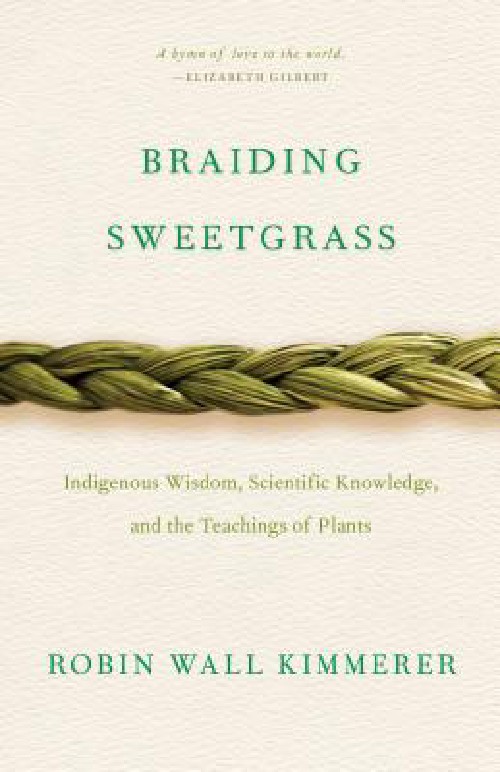
Braiding Sweetgrass
Copyright 2014, Milkweed Editions
Climate Change, Indigenous Issues
Despite my ongoing interest in the climate crisis, this year I only read a couple books that I could really say were about the ongoing human-caused destruction of our biosphere. One book was Robin Wall Kimmerer’s incredible Braiding Sweetgrass, a collection of essays I already know I will be returning to many times.
Kimmerer is an enrolled member of the Citizen Potawatomi Nation and an ecologist, among many other roles. Braiding Sweetgrass is a collection that braids together the many knowledges and wisdoms she has gained through her culture and education, into a singular work that challenges the settler colonial mindset that the western world is still deeply embedded in. Her essays share deep insight about the world that has created us and sustains us. I found this book invited me to pay closer attention to everything around me, and challenged me to put more energy into the work of unmaking the destruction that my culture continues to sow across the planet.
The other book I read was Rebecca Solnit’s A Paradise Built In Hell which is more about how humans handle disaster, and it’s well worth reading so you can understand that the assumption humans will panic and be evil post-disaster is a lie.
Black history / race theory
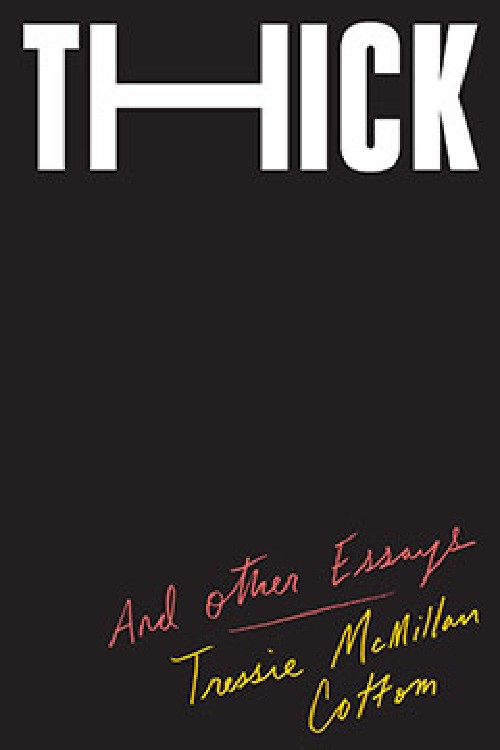
Thick
Copyright 2019, The New Press
Race, Cultural Analysis
One of the first books I read in 2019 was Dr. Tressie McMillan Cottom’s Thick and Other Essays. This book is a brilliant series of essays that use Dr. Cottom’s personal life as a way of exploring the many intersections of class, race, gender, and more. Dr. Cottom is a sociologist and uses her deep understanding of theory and Marxist analysis to help readers see how systems and culture are constantly intersecting and producing the world we live in.
Honestly I struggle to do justice to this book, it is magnificent on so many levels. Dr. Cottom writes gorgeous prose while also using each essay to draw out new, interesting insights that changed my understanding of many topics. If for some reason you have not read this book, please do so and then tell me what you thought of it!
Other books that I enjoyed on Black history / race theory:
- Dr. Carol Anderson’s One Person, No Vote, about voter suppression. Horrifying and necessary to read.
- How We Get Free, edited by Keeanga-Yamahtta Taylor, an oral history of the Combahee River Collective, which wrote the statement that original conceived of an intersectional analysis of identity.
- Although this book was actually about whiteness and the ways it continues to be oppressive, I’ll include Robin DiAngelo’s White Fragility here as a type of race theory analysis. It’s a helpful book, but as some have observed, the “Fragility” in question is a performance to maintain power, thus perhaps a better framing could be found.
- Superior by Angela Saini is an excellent history that explores pre-WWII eugenics science and then traces the many ways that it has survived all the way into our current era. Despite the popular narrative that this vein of science fell with the Nazis, Saini shows that it has survived and researchers exploring this line of thinking still have funding, power, and influence.
- Ruha Benjamin’s Race After Technology I’m double listing because it’s both a critical analysis of tech and an examination of how technology intersects with race and identity. Excellent book.
Disability theory
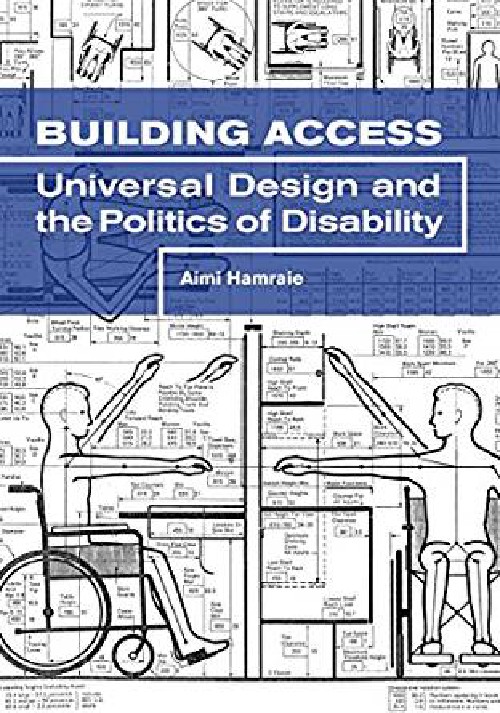
Building Access: Universal Design and the Politics of Accessibility
Copyright 2017, University of Minnesota
Tech Industry, Disability Theory
This year I started trying to learn more about disability theory and that line of inquiry introduced me to so many interesting books. Every book I read was interesting and taught me so much, but I’ll highlight the first book I read on the topic; Aime Hamraie’s Building Access: Universal Design and the Politics of Accessibility. For many years I have enjoyed the concept of “Universal Design” or working to design a world that works for everyone. Hamraie’s project is to understand what exactly is meant by “everyone” and how that definition came to be.
Their book covers a history stretching from the early 20th century to modern times and helped me understand how political the seemingly neutral idea of “everyone” can be. The book shows how hard it has been for disabled people to make themselves known and included in the topic of “everyone,” and thus shows how much work remains in building a world that has access for all people. I wrote about what I learned from the book earlier this year.
Other books you should read:
- Bess Williamson’s Accessible America which converses extremely well with Hamraie’s book, is specifically focused on design in the 20th century and how disable people fought to be considered in the worlds of architecture and consumer products.
- Kat Holmes’ Mismatch which is a good summary of disability theory aimed at people who work in the tech industry.
- Care Work: Dreaming Disability Justice, by Leah Lakshmi Piepzna-Samarasinha, is a collection of essays that explores the many ways disabled people work to overcome ableism and imagine worlds that have space for everyone, no matter how many spoons they have.
- Elizabeth Guffey’s Designing Disability is about how we mark and concieve of disability in the built world, and includes a fascinating history of how wheelchairs were invented and have been culturally understood since.
- Robert McRuer’s Crip Times explores how disabled protestors and artists are intervening in austerity politics to argue for politics and worlds that are less rigid, more humane, and undermine the neoliberal regimes that have risen after 2008.
Other non-fiction
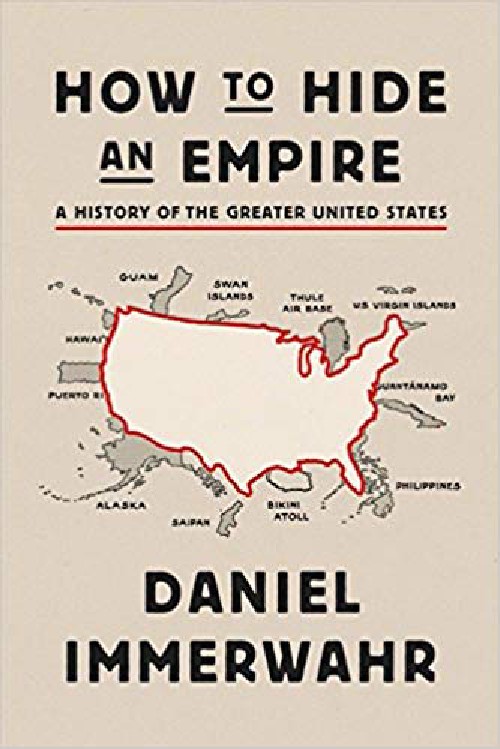
How to Hide an Empire
Copyright 2019, Farrar, Straus and Giroux
Cultural Analysis
Oh my god I read so many other good books this year. I kept reading through my list and trying to figure out which book to highlight, and finally I decided that Daniel Immerwarh’s How to Hide an Empire was at the top of my list because of all the things I learned from it. Immerwarh covers the history of American imperialism in the past century and a half to help readers understand just how vast it’s been and how much our political leaders have invested in downplaying it.
The book is filled with history that somehow I never learned, about the ways we came into “possession” of the various colonies we still have, as well as histories about the Philippines and other countries that are no longer officially American land but nevertheless have been deeply affected by American imperialism. Immerwarh’s prose is easy to read but the stories he tell are hard to hear. This book was extremely helpful for me as I wrestle with how to understand the country I live in.
I read so many other good books that I’ll subdivide them a bit. Below are other books that helped me understand the world a bit more clearly.
- Astra Taylor’s Democracy May Not Exist, But We’ll Miss It When It’s Gone is one of the most through provoking books I read this year. She organizes the book around opposing concepts that any democracy must somehow find a balance between, and in so doing exposes why exactly democracy is so hard to establish and maintain in our world.
- Jenny Odell’s How to Do Nothing is an excellent book that explores the ways that our attention is quickly becoming commodified by tech and media companies, and includes her argument for how we might resist things. It’s not a traditional “how-to” book, rather it’s a call for us to find ways to more intentionally engage with the non-human world that sustains and surrounds us.
- Carmen Maria Machado’s In the Dream House is a brilliant memoir that explores queer domestic abuse, but also her book is curious about how we can tell a story that doesn’t map onto the existing ways we understand the world. A heartbreaking, creative, challenging book that tells a singular story in a way that opens the door for many others to let their own stories find the light.
- Michael Lewis’s The Fifth Risk is a quick read, but it does something I haven’t encountered and want to read about in dozens more books: it exposes and reveals the value of the hard, quiet work involved in civil service. Lewis is curious about how the Trump administration can fuck us over, but in the process he explores the human side of bureaucracy and the project of organizing a massive country like the US.
I always enjoy essay collections and this year I read some wonderful ones. Along with Braiding Sweetgrass, mentioned above, I enjoyed these collections:
- Alicia Elliot’s A Mind Spread Out on the Ground, (which isn’t out in the States until August) is an incredible essay collection exploring many facets of indigenous identity in the world today. Elliot writes about the challenges of being half-indigenous and half-white and the many injustices still perpetuated against indigenous people, in beautiful, challenging, and heart-breaking prose.
- Ursula K. Le Guin’s No Time to Spare is an edited collection of Le Guin’s blog posts, and covers many topics. Some of the essays are light; about a cat adopted late in life, and others cover heavier subjects like writing and imagination.
- Just like everyone it seems, I read Jia Tolentino’s Trick Mirror this year. I enjoyed the book so much, it’s infuriating how good Tolentino is at writing.
I read a few classics in fields I’m interested in, they are well worth your time:
- E.F. Schumacher’s Small is Beautiful is a book I read half of years ago and finally got around to reading in its entirety this year. Schumacher builds a prescient and helpful analysis of how modern economic theory is premised on impossible ideas of infinite growth and unlimited resources, and proposes some ideas for alternate economic arrangements. Reading this in the face of our growing climate crisis, I wished his ideas had taken hold.
- John Berger’s Ways of Seeing is a small, influential volume that analyzes cultural representations of men and women and explores, through written and visual essays, how different gazes are developed.
- Benedict Anderson’s Imagined Communities is a classic in sociology, arguing that the rise of print capitalism helped people concieve of themselves as part of a national polity. I enjoyed this book and am hoping to find more critical analysis of it this year to inform my thinking.
